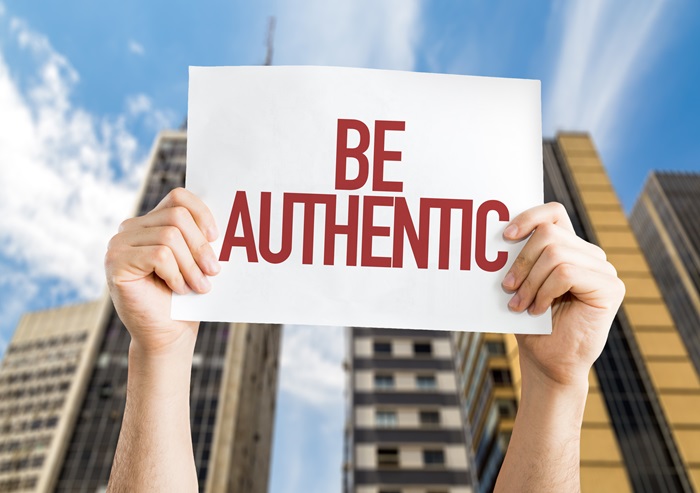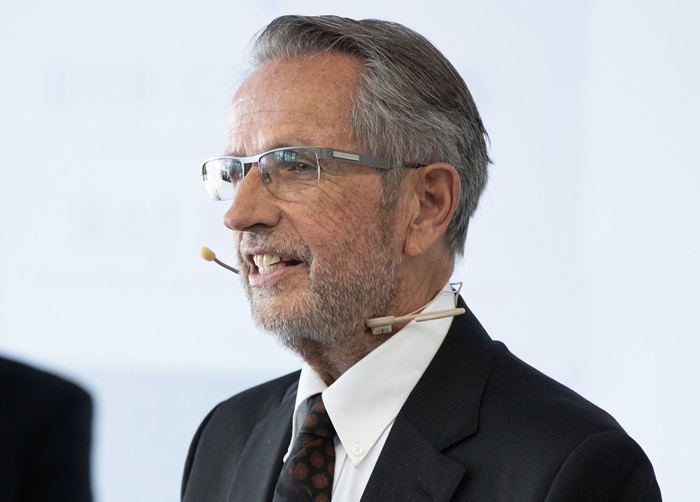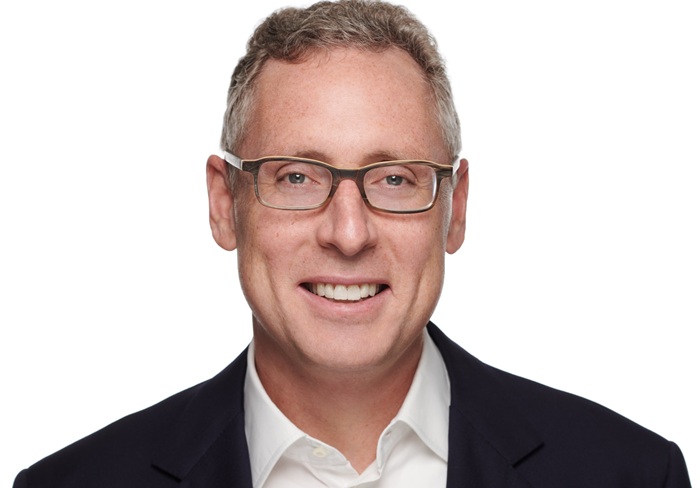Ten Core Principles of Social Capital Leaders
By Chris Benguhe, RaeAnne Marsh and Elaine Pofeldt | October 10, 2024 10:20 am
From authenticity to fairness — an amazing year of Social Capital features reveals the ultimate value-adding strategies of people-centric (and successful) CEOs.

It is our privilege and purpose to honor CEOs and business leaders who, indeed, see people as the point of business and of profits, which allows them to build strong bonds with those they rely on for their success (Image: Gerd Altmann/Pixabay)
Happy Anniversary to the Center for Social Capital. Over the last year, we have dug deep into the minds, hearts, souls and playbooks of some of American’s most insightful, most compassionate and most successful leaders to uncover the secret sauce of Social Capital. The values and proven people-centric practices we exclusively revealed can help you to follow their lead and find the same success for all the right reasons.
The words “proven” and “successful” and “people-centric” used above are purposeful and essential to the concept of Social Capital. Because unlike many other movements, certifications and philosophies out there that might stress being a “benefit” or “sustainable” or a slew of other perfectly fine ideas, Social Capital is the only delineation that stresses the undeniable and inseparable relationship between success in business and success in the lives of all those around us.
In other words, it’s all about the value of people — employees, customers and members of the community — and how a people-first approach to business leads to better business and greater prosperity and happiness for all. As our nation and our world struggle to find their direction and their mantra, this would seem to be something we can all agree on.
Certainly it’s not a new idea — although it seemed like it when we brought it back into fashion and exclusively shone our Center’s light on it last year. The concept of Social Capital is derived from Adam Smith’s 1700s notion of capitalism serving the greater good of humanity because, as he famously said, “How selfish soever man may be supposed, there are evidently some principles in his nature, which interest him in the fortune of others, and render their happiness necessary to him, though he derives nothing from it except the pleasure of seeing it.”
Smith believed there is an inherent human payoff in seeing others do well, and those who serve others to improve their lives through business will receive that goodwill back — because those served and empowered people will desire to serve back bestowing customer loyalty, higher employee retention and performance, and community support. Ultimately, this leads to the creation of an incredible perpetual cycle of prosperity and happiness that benefits all.
In other words, capitalism done right with people-centric policies taps directly into — dare we say it? — love, making a pretty convincing argument that we do not need to, and should never, separate humanity from our business.
Now, just to stop you in your tracks before you say, “Love in business? Are you out of your mind?” the answer is an emphatic and proven, “No!”
Visionary leader Alan Mulally of Ford fame rebuilt that legendary company when it was failing and brought it back from a $17-billion loss by specifically rebuilding his business and employee model around an actual system of love. “Alan Mulally Built an Operational Strategy around Love – and It Worked!: Dave Alexander Center for Social Capital”
Super-successful founder and CEO Bob Chapman frequently talks about treating your employees “like someone’s precious daughter.” “Bob Chapman’s Simple Idea for Big Success: R-E-S-P-E-C-T: Dave Alexander Center for Social Capital”
Brian Niccol recently was rewarded with a superstar salary when he was hired to rescue Starbucks because of his daring people-centric strategies while he was at Chipotle. “The Words Brian Niccol Shared With Us While at Chipotle Bode Well for Starbucks: Dave Alexander Center for Social Capital”
And so on.
It is our privilege and purpose to honor CEOs and business leaders who, indeed, see people as the point of business and of profits, which allows them to build strong bonds with those they rely on for their success: their employees, their customers and their communities. This approach drives success and also gives them a sense of meaning and purpose in an increasingly challenging and complicated world.
We at the Dave Alexander Center for Social Capital are committed to recognizing and chronicling these leaders and their companies because we believe this is how business, capitalism and the world should work and needs to work for the continued growth and success of business in America and the world.
So, we have spent the last year researching, studying and interviewing some of the most successful business leaders in America and their practices to create a code of very tangible and repeatable principles that led to their success.
And now we are immensely proud to present those here together for the first time so you can easily follow the lead of these captains of compassionate capitalism to embrace these ten principles of Social Capital in business.

We honored one of the most important features of Social Capital — authenticity — and the CEOs who embody and practice it day after day. (Istockphoto/gustavofrazao)
Authentic CEOs: Antidote to the Counterfeit Culture
In an age when fakes, frauds and self-serving agendas are rampant, these genuine business leaders are real and really making a difference.
It is with great excitement and vigor that we proudly announce the launch of the new Dave Alexander Center for Social Capital and its official publication — the Social Capital Insider. And what better way to officially christen both than by honoring one of the most important features of Social Capital — authenticity — and the CEOs who embody and practice it day after day.
They are leading the way to showcase how real work, real values and real concern for others out-performs virtue signaling when it comes to improving the lives of their customers, their employees and those in the communities they serve.
- Ed Bastian – CEO at Delta Air Lines
- Seth Bogner – Chairman & CEO at HeartPoint Global
- Lorna Borenstein – Founder & CEO at Grokker
- Robert Glazer – Founder, Chairman of the Board & Former CEO at Acceleration Partners
- Marshall Goldsmith – Founder at MarshallGoldsmith.com
- Fred Hassan – at Warburg Pincus; Former Chairman & CEO at Schering Plough
- Damien Huang – CEO at Cotopaxi
- Jasmine Jirele – President & CEO at Allianz Life of North America
- Brian Niccol – Chairman & CEO at Chipotle
- Tom Nolan – CEO at Kendra Scott
- Antonio Nuño – Co-founder & CEO at Someone Somewhere
- Penny Pennington – Managing Partner at Edward Jones
- Garry Ridge – Former CEO at WD-40 Company
- Brian Scudamore – Founder & CEO at O2E Brands / 1-800-GOT-JUNK?
- Chris Todd – CEO at UKG
- Walter White – Independent Director & Former CEO at Allianz Life of North America
Family Is the Backbone of Business: CEOs Who Support Our Most Important Institution
They understand America and capitalism depend on the strength, health and future of families.
In his famous book The Wealth of Nations, Adam Smith set off a firestorm of controversy with his idea that maximizing self-interest is the best route to the greatest good for all of society. Often regarded as the father of modern capitalism, he ignited a debate that still creates quite a ruckus today.
However, it is also important to realize that, in his other, lesser- known work, The Theory of Moral Sentiment, he clarifies “self-interest” as significantly more complex, involving many aspects of human nature and life that are folded into one’s self-interest. Therefore, he argues, they must be promoted for society to prosper — and not the least of these was the desire to see the betterment and fortune of others, as well as oneself.

We honored CEOs and business leaders who realize that, as much as they want their employees to feel like they are part of a beautiful family at work and much as they might genuinely feel bonded with those individuals, they know all of us are ultimately way more bonded to our primary families. (iStock: LightFieldStudios)
And though he advocates for bringing that desire into every aspect of one’s life, he explains that one of the most powerful places where we can grow and serve that desire is in our own families where there is no profit motive at all, but only the yearning to love. The nurturing, strengthening and replenishing that happens in that safe space enables individuals to more competently compete and perform in the workplace, and also feel empowered to bring some of that love into the workplace. Therefore, supporting the family ultimately supports the workplace.
- Tony Capuano – President & CEO at Marriott International
- Penny Pennington – Managing Partner at Edward Jones
- Chris Todd – CEO at UKG
- Jasmine Jirele – President & CEO at Allianz Life of North America
- Trent Griffin-Braaf – Founder of Tech Valley Shuttle and Roadmap to Success™️
- Joe Ucuzoglu – CEO at Deloitte US
- Antonio Neri – President & CEO at Hewlett Packard Enterprises
- Chuck Robbins – Chair & CEO at Cisco
- Jim Goodnight – CEO at SAS
- Robert B. Ford – Chairman & CEO at Abbott Labs
Five CEOs Who Empower Others – and How!
Uplifting and strengthening people is an integral element of capitalism – and business done right.
A new year is upon us, and that means a new opportunity to realize why empowerment so important and crucial to the Social Capital movement: Policies of empowerment in business operations shine a bright light on the tremendous power and potential of capitalism to improve the lives of the greatest number of people and, when done right, to make the world a better place.
At its heart, that is the saving grace of capitalism.
So, let’s take a look at some incredible leaders who are fighting the good fight. These C-suite stars are making it their goal to help employees not just do their jobs more effectively but live better and more complete lives, even if it happens after their tenures at the company or beyond the scope of their work. Beyond this, many are helping customers to improve their lives and sense of self-worth and satisfaction well after the exchange of goods and services has ended. And they are bolstering the neighborhoods and communities in which they operate or interact directly and indirectly through the operations of the businesses and business model.
- Ed Bastian – CEO at Delta Air Lines
- Garry Ridge – Former CEO at WD-40 Company
- Bob Chapman – CEO & Chairman at Barry-Wehmiller Companies
- Austen Allred – Co-founder & CEO at BloomTech
- Damien Huang – CEO at Cotopaxi
Faith Matters – And the Business World Finally Gets It!
These companies and their leaders realize that inclusivity must include faith if they want to prosper – and the world to benefit, too!
Soon after launching the Center for Social Capital last October, we planned our editorial calendar for the year, and we resolved to include an article on faith — specifically, companies that see the importance of recognizing faith as part of their overall inclusivity efforts and making it not just allowable but proudly promoting that openness. We were hearing fist-hand from very prominent Social Capital CEOs how much their employees were asking for it, and how much positive feedback they received from them after instituting such practices — sometimes in spite of heavy pushback.

For many who are religious, their faith is a big and important part of how they act and behave at work as well as in their personal lives. (Istock/gustavofrazao)
Then, just as we were putting together our article, our focus and perspective on the importance of faith in business was validated when the World Economic Forum complemented our research with their Faith in Action report produced in collaboration with the World Evangelical Alliance, Bhumi Global, Council for Inclusive Capitalism, the Religious Freedom and Business Foundation.
- Stephan Jacob – Co-founder, Chief Technology & Global Biz Dev at Cotopaxi
- Pat Gelsinger – CEO at Intel
- Alex Chriss – President & CEO at PayPal
- Haviv Ilan – President & CEO at Texas Instruments
- Rich Templeton – Chairman of the Board & Former CEO at Texas Instruments
Well-Being and Companies Slaying the Burnout Dragon
How these top business leaders are taking diverse but equally powerful and effective approaches to improving the general state of being of everyone!
For the last several years, there has been an alarming rise in what the World Health Organization first identified in 2019 as “burnout,” or unmanaged workplace stress. In fact, they went so far as to attribute the deaths of 2.8 million people a year to it.
So, as our mission-driven and very committed team continue to specifically define and exemplify the idea of Social Capital with our feature articles and the leaders who embody the principles those features focus on, we realized that one of the most basic and important of those far-reaching principles needed to be the devotion and importance of well-being as a potential antidote for that alarming phenomenon.
- Ed Bastian – CEO at Delta Air Lines
- Seth Bogner – Chairman & CEO at HeartPoint Global
- Bob Chapman – Chairman & CEO at Barry-Wehmiller Companies
- Susanne Evens – Founder & CEO at AAA Translation
- Jasmine Jirele – President & CEO at Allianz Life of North America
- Jonathan Keyser – Founder & Managing Partner at Keyser
- Jill Koziol – Co-founder & CEO at Motherly
- Steve MacMillan – Chairman, President & CEO at Hologic
- Richard Moore – President & CEO at The Good Feet Store
- Brian Niccol – Chairman & CEO at Chipotle
- Maraia Tanner – CEO at STAR Harbor Academy

Effective listening improves relationships, trust and decision-making, and leads to greater collaboration, creativity and innovation. (Image: Pixabay/Gerd Altmann)
Business Leaders Who Really Know How to Listen!
And how it transformed their companies and led to great successes!
The critical difference that can come from listening with a caring heart and ear underlies an anecdote our Center for Social Capital Founder Chris Benguhe shares in a book he wrote a few years back. He talked about heroism from a perspective slightly different from most — looking Beyond Courage (as he titled his book) at the oft-overlooked traits of what it takes to be a hero in our day-to-day lives. And the ability and willingness to really listen was one of those. The story told to illustrate the value of listening was a powerfully compelling true account of a high-school teacher who helped stop a Columbine-style shooting by simply being there to listen to her students, proving she valued their thoughts and concerns. The trust she inspired compelled one of those students — a troubled teen who felt unheard by others — to come forward and confide in her teacher a dastardly plot her friends were unfurling. The plan was foiled in the nick of time, and it was all thanks to the miraculous and heroic value of listening.
The power of that heroic ability extends into every aspect of our lives — especially business, where studies show the overwhelming majority of workers feel like they are not heard by their employers. As do the majority of customers.
- Brian Niccol – Chairman & CEO at Chipotle
- Ginni Rometty – Former Chairman & CEO at IBM
- Bob Chapman – CEO & Chairman at Barry-Wehmiller Companies
- Austen Allred – Co-founder & CEO at Bloom Institute at Technology
- Robert Glazer – Founder, Chairman of the Board & Former CEO at Acceleration Partners
- Antonio Nuño – Co-founder & CEO at Someone Somewhere
The Empathy Emergency! Successful Business Leaders Need It Now More than Ever
It’s not just about being nice – you must be effectively connecting to employee and customer emotions and needs.
People are hurting – economically, physically, socially and emotionally maybe worse than in a generation. And if business leaders want to succeed they must respond by demonstrating they not only care but are aware of what their employees and customers are experiencing and are willing to do whatever it takes to help.
Human beings are social animals, and we need each other not only to survive but to thrive in society. So, it should be a no-brainer that this kind of necessary cooperation and integration is needed in the workplace just as it is in every other sector of our lives — if not even more so, if we hope to bring about and maximize our mutually desired success in business. That has been empirically proven time and time again by scores of studies and surveys.
- Bob Chapman – CEO & Chairman at Barry-Wehmiller Companies
- Damien Huang – CEO at Cotopaxi
- Ginni Rometty – Former Chairman & CEO at IBM
- Garry Ridge – Former CEO at WD-40 Company
- Fred Hassan – at Warburg Pincus; Former Chairman & CEO at Schering Plough
- Jonathan Keyser – Founding Member & Managing Partner at Keyser
- Jill Koziol – Co-founder, Board Director & Former CEO at Motherly
- Don Larson – Founder & CEO at Sunshine Nut Company
- John Mackey – Co-founder at Love.Life; Co-founder & Former CEO at Whole Foods
- Harold MacDowell – Board Director & Former CEO at TDIndustries
- Robert Glazer – Founder, Chairman of the Board & Former CEO at Acceleration Partners
- Susanne Evens – Founder & CEO at AAA Translation
- Seth Bogner – Chairman & CEO at HeartPoint Global
- Duncan Angove – CEO at Blue Yonder
- Maraia Tanner – CEO at STAR Harbor Academy
- Dave Alexander – Founder & Managing Member at Caljet at America

We rounded up a few Social Capital leaders who show a profound commitment to the importance of building a successful and prosperous community in different ways. (Image: istock / IvelinRadkov)
Business Is the Ultimate American Community Organizer
It’s all about building a culture of connectedness internally in the workplace and externally in the world around us.
Businesses cannot succeed, nor should they, if they do not create a network of real and organic connections to those inside and outside their companies. If they do, they not only can strengthen their brand and their internal infrastructure but their benefits to society as a whole.
We talk a fair amount about philosopher Adam Smith at the Center for Social Capital and how he was a huge believer that capitalism not only was good for society but needed to be in order to work correctly. And the value that Smith placed on community was huge.
- Anthony Capuano – President & CEO at Marriott International
- Richard Moore – President & CEO at Good Feet Store
- Jamie Ratner – Founder & CEO at CertifiKID Holdings, LLC
- Payam Zamani – Founder, Chairman & CEO at One Planet Group
- Bob Dalton – Founder & CEO at Sackcloth & Ashes
In Pursuit of Excellence in Business
There are a million different definitions of and suggested paths to greatness in the business world, but we prefer the one that starts with people.
There are few phrases or ideas more provocative and yet more nebulous at the same time than that of business excellence. There are, literally, hundreds of different definitions and models for achieving it out there in the business ether. (Not exaggerating; look it up.) Some of the verbiage bandied about includes fancy phrases like “business development best practices,” “innovation” and “superior organizational practices,” to name just a few.
But just about the only common denominator in all those diverse descriptions is that most agree the idea of excellence is far more complex than simply achieving financial success. They agree that, ultimately, it is about something beyond bolstering the bottom line.
- Kevin Classen – CEO at FirstBank
- Ed Bastian – CEO at Delta Air Lines
- Anders Jones – CEO & Co-founder at Facet
- Jason Lippert – President & CEO at Lippert Components

We featured some amazingly inclusive CEOs who are focusing on the ultimate DEI strategy, and what they have to say about that can offer some insight on how the rest of us can do the same. (Image: Bruce Emmerling/ Pixabay)
Fairness Versus DEI? You Can and Must Have Both
Business models focused on creating equality of opportunity rather than on equality in outcome should not be seen as threatening to DEI but an effective method of implementing it.
The word “fairness” appeals to everyone, right? Except that everything in our cultural landscape nowadays seems to inspire controversy.
That was rather unexpectedly the case when we set out to write this article and asked CEOs to include their thoughts on how to implement fairness of opportunity. Amazingly, that scared some leaders away from commenting. How can that possibly be?
We were a bit flabbergasted by that, to be honest. Especially since our whole intention was to clear out the clutter on the subject and talk about what matters the most to us at the Center for Social Capital: people, and how business can best serve and respect them. For us, fairness was a triangulation of recent thoughts on the topic rather than an opposition to one side or the other.
- Abigail Johnson – Chairman & CEO at Fidelity Investments
- Paul Knopp – Chair & CEO at KPMG US
- Bob Sternfels – Global Managing Partner at McKinsey & Company
- Michael Brady – Founder of Organic Food Incubator and Operating Partner at Southeast Acquisition Capital
- Trent Griffin-Braaf – Founder of Tech Valley Shuttle and Roadmap to Success™️
- Beth Ford – President & CEO at Land O’Lakes Inc.
Additionally, our “Companies Created to Save the World – for Real” feature spotlighted several businesses that, beyond being structured around Social Capital principles, were founded on specific Social Capital goals.




